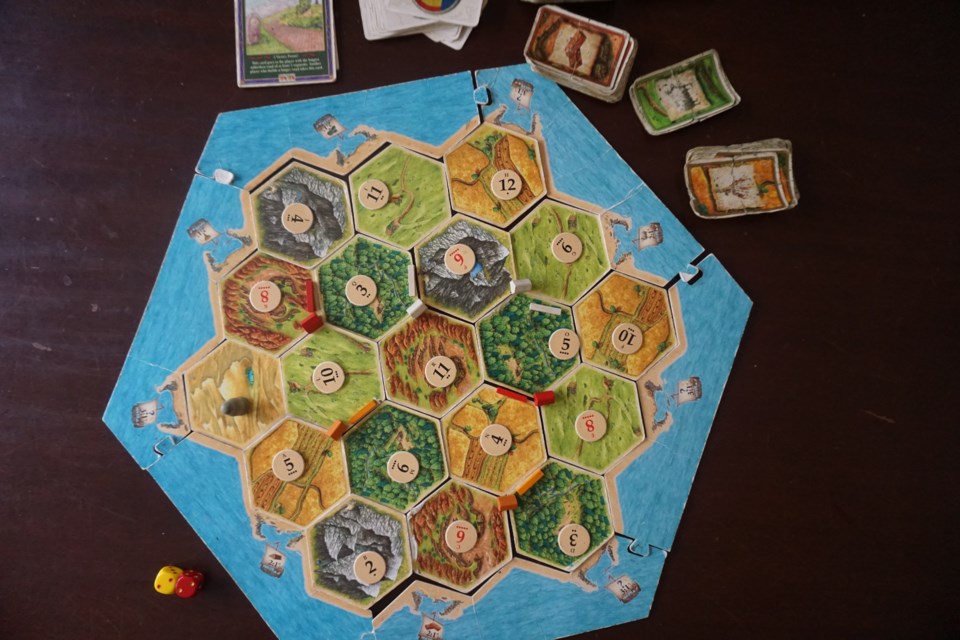‘I’ll trade you two sheep for a brick’ to which my opponent replied: ‘No, three sheep.’
And since I desperately needed that brick to build a settlement, I complied and took the deal.
Such was what entered my mind upon reading what I originally figured was a piece from The Onion satirical website.
But no, this was an actual opinion article in The Conversation that was trying to show some sort of bizarre link between playing Settlers of Catan and what has become an oft-mentioned word that appears in most news sites on a daily or at least weekly basis. And that word is ‘colonialism.’
The word has come to mean the time when First Nations’ lives were changed forever by the arrival of Europeans and the subsequent, and at times damaging, systems put into place.
And this piece titled 'What’s unsettling about Catan: How board games uphold colonial narratives' goes on to explain how Catan follows a familiar pattern of other ‘colonialist’ games such as Risk and pretty much anything else where the goal is to get the most resources and build out into the playing surface to win the game.
The author notes that "because players in Catan explicitly take on the roles of settlers, this particular board game’s engagement in the rhetoric of settler colonialism set new precedents. And unfortunately, games that incorporate colonial histories and strategies into their narratives or game mechanic normalize these discourses through their status as a popular pastime."
Further, author Biz Nijdam, who is an assistant professor at the University of British Columbia, says, "the success of Catan also codified a certain kind of game play that has similarly proliferated worldwide, one that’s invested in the specific historical, economic and political factors of settler colonialism."
I felt like yelling at my laptop, ‘not everything in our world today is about colonialism.’ What a sad, woke world we now live that we've sunk so low with huge stretches of logic like this one.
Prior to the arrival of the Europeans, it was not all sunshine, peace and rainbows for Indigenous peoples after they arrived here from Asia thousands of years ago and settled in parts of North, South and Central America.
Some of the concepts that now get thrown about when one mentions the word ‘colonialism’ existed prior to the arrival of Europeans in both Canada and the United States of America.
Native American history tells us that wars were often fought between tribes in an effort to get more land and/or resources. Defeated tribe members could be taken by their captors to either be assimilated, used as slaves or even tortured to death.
While they lived very different lives from their European counterparts prior to contact, many of the same characteristics and frailties of humanity existed on both sides of the Atlantic Ocean.
For centuries, tribes, countries and other men have been trying to take over what they don’t have.
In interviews, game inventor Klaus Teuber said he started creating games in the 1980s to help deal with the stress of his dental career.
"I developed games to escape," he said. "This was my own world I created."
And this guy grew up in Germany during the Second World War. He's not alluding to Germany's quest for world domination, but rather an escape from reality.
As a family, we've played this particular game hundreds of times. And like Teuber suggests, it's a fun escape from reality and has led to many hours of fun times together. Not everything has to be linked to something nefarious.
And why attack a family board game when there’s so much other low-hanging fruit? Has the writer looked into video games and the violence that pervades?
Or should we stop people from playing what I consider the meanest game of them all, even though it’s likely the bestselling board game of all time?
That game, of course, is Monopoly.
Should Monopoly stop being sold because of its underlying message that taking every last cent from one’s opponents is a good thing and follows Gordon Gekko’s ethos that “greed is good?”
Or should we just encourage families and friends to get off their devices for a couple of hours and enjoy each other’s company while playing a simple game?
Not everything has or has to have an underlying social commentary.
